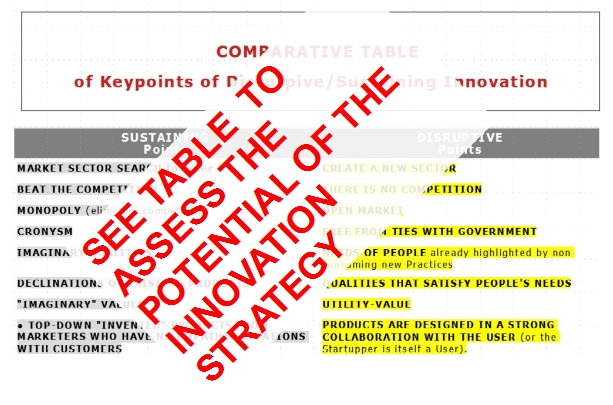The success of the companies that develop disruptive innovation does not depend at all on the Customer Experience, which is a concept that is based on meanings that are no longer valid in the new market.
Today we often make heavy mistakes when analyzing companies that apply disruptive innovation strategies. In fact, many cases are used
the culture of the previous market phase to analyze what is happening again. In reality it is not about having
In other words, concepts are used that are based on meanings that no longer have the same meaning in the new Market of Disruption. This leads to the impossibility of understanding the real meaning of this success.
.
One of these concepts – strategic in the declining market – is User Experience. <see The wrong interpretation of the Customer Experience >
In the new Market the meaning of previous User Experience has been overturned:
● user experience was a factor in the top-down product strategies: basically a Customer Experience was prepared for the Customer that worked in favor of the Producer (a significant example is Alexa, which reduces the UX of the Customer to a minimum, and induces the latter to a high number of acuisti on Amazon).
● today the relationship with the Customer is designed to be in favor of the latter. And it is managed bottom-up (the product is Customer driven).
It is not an ethical question: it has been discovered that the success of new products derives from the radical transformation of this factor.
Therefore the previous Analytic Marketing no longer makes sense (identifying the attitudes of the Users by reading Big data) <see A real disruptive innovation radically changes the relationship with the Customer>
.
The success of the current disruptive strategies derives from the ability to undertake an empathic relationship with the Customer (not based on data, on the level of intuition – which has always been the fundamental quality of the Entrepreneur, now replaced by the Managers <see The Entrepreneur’s DNA >).
A relationship that evolves by involving the Customer in the process of designing and producing the Product. <see Towards a New Marketing (1): beyond the Analytic Marketing, toward a pro-sumer Market>
.
Companies that do not follow the new rules of Disrutpive innovation are inexorably destined to be disrupted. <see .Decalogue of Rules of Disruptive innovation >


